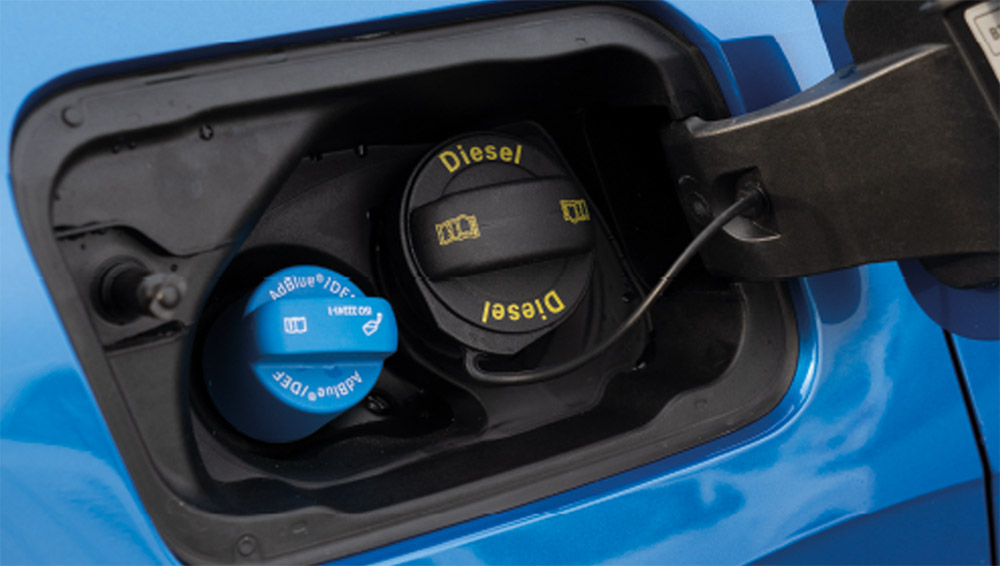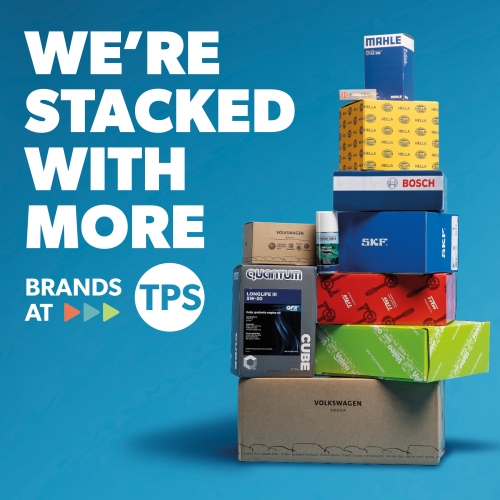Emma Clack-Palmer, Local Parts Product Manager at Volkswagen Group UK, explains why AdBlue® is an ideal opportunity for cross-selling to your customers.
AdBlue® is used to help reduce harmful exhaust emissions in many Euro 6 diesel engines and has become increasingly common since 2015. Kept in a reservoir, it is automatically injected in small quantities into the flow of exhaust gas where it reacts with the Nitrogen Oxide produced and breaks itdown into harmless nitrogen and water.
Although some diesel drivers will already be aware of the need to top-up, your customer may not be aware that if AdBlue® runs out, their engine’s power and performance will be reduced in order to limit its emissions. Once the engine is turned off, it will not restart until the AdBlue® has been replenished.
AdBlue® creates an opportunity to further your relationship with your customers by offering them knowledgeable advice about how best to take care of their vehicle.
Whilst sales of new diesel vehicles are falling, some 750,000 new diesels will be registered this year, and millions will remain in use for years to come - an increasing proportion of which will require AdBlue®. The opportunity therefore should be clear.
The facts:
- AdBlue® is an exhaust fluid, not a fuel additive
- It is a mixture of synthetic urea and de-mineralised water, it is colourless and non-toxic
- It is stored in a separate reservoir and can be topped up via the blue filler cap found next to the fuel filler, in the boot, or beneath the bonnet
- How long AdBlue® lasts depends on your customers’ engine, their driving style and variations in tank sizes. This will then impact frequency of refills.
A dashboard warning sign will flash to alert when a top-up is needed. Remind your customers that AdBlue® and top-ups are available from your workshop.
Be sure to make AdBlue® top-ups an essential part of your routine service jobs for applicable cars and also remember to let your customers know you’ve topped up their vehicle. It’s also worthwhile educating your customers about their AdBlue® requirements and an ideal opportunity to sell a top-up pack for them to take away. This can build additional loyalty and can also help to remind your customer you are the go-to for future vehicle needs.
The benefits of Quantum AdBlue®
- Ultra-filtered to provide a product of the highest quality
- Available in a variety of pack sizes catering for all needs and sizes of business, plus allows excellent storage options. Sizes include 5L, 10L and 205L
- Adheres to stringent testing to ISO22241 standard
- Easy pour with no mess and no wastage, and the 10L pack incorporates anti-glug technology
- Very competitive trade prices.
Using AdBlue® for Customer Value
- Offer AdBlue® as stand-alone top-ups - set a retail price per litre and fill as required and additionally offer as a takeaway top-up. Sizes of Quantum AdBlue® include 5L, 10L or 205L
- Consider including as part of your service offering
- Use AdBlue® as an opportunity for cross-selling.
Storage and Handling
- AdBlue® should ideally be stored within a temperature range between 0 and 30°C, and kept protected from direct sunlight.
- The storage area should be clean and free from dust to avoid any contamination, especially when a vehicle is being filled with AdBlue®.
- Packaged AdBlue® can be stored for up to a year.
Handling
- Do not use old diesel or oil containers to transfer AdBlue® into the tank. Any non-dedicated equipment can contaminate AdBlue®. Even very small quantities of fuel/oil/lubricant can damage the SCR system.
- AdBlue® can leave stains and/or cause the floor to become slippery. If you spill AdBlue® on the floor, inside a vehicle, or on a painted surface, rinse with water. If you spill AdBlue® on your skin or on your clothes, you can remove it with water.
IMPORTANT: AdBlue® is produced in a controlled environment to avoid cross-contamination and comes in plastic containers to stop any metal alloys leaking into the product. It is important to only use equipment such as jugs or pumps approved for us with AdBlue® to avoid cross-contamination. If spilt, the product will start to crystallise in contact with the air and can be corrosive to metals, this means it’s important to keep containers closed and clean up spills immediately.




